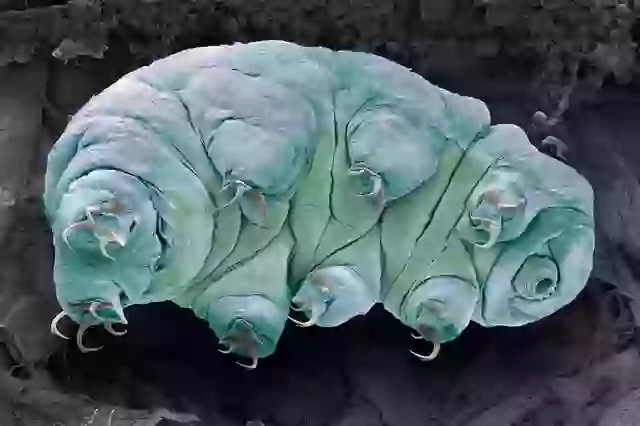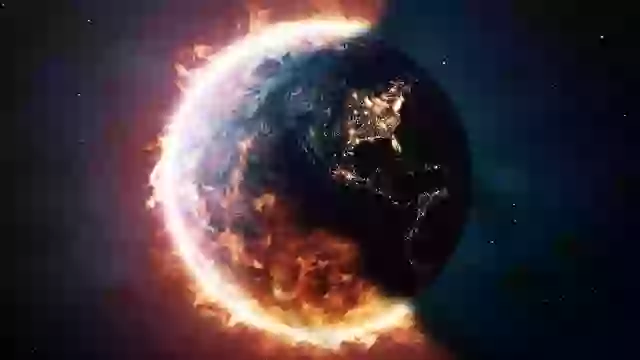This Is The Only Animal That May Survive The End Of Civilization
People have been speculating for years about what would happen if some cosmic disaster wiped out everything on Earth. Would any form of life survive a supernova blast, a gamma-ray burst, or a massive asteroid strike?
Most of us picture cockroaches or some other tough insect crawling out of the ashes, but it turns out there’s another contender that might do even better. In 2017, a team of researchers from the University of Oxford and Harvard University set out to answer precisely this question.
They weren’t interested in everyday threats like deforestation or nuclear war; they focused on events powerful enough to “completely sterilize an Earth-like planet.” That meant looking at four extreme scenarios: a nearby supernova explosion, a gamma-ray burst, a massive asteroid impact, and a close pass by another star.
The scientists ran the numbers on how intense each event would be at various distances and which forms of life, if any, could hang on. As you might expect, humans wouldn’t stand a chance.
Any of those catastrophes would heat the oceans so much that every drop of water would boil away. Without liquid water, complex organisms like us can’t survive.
Yet when the team crunched the survival thresholds for different creatures, one tiny animal kept popping up as the clear winner: the tardigrade. You’ve probably never met one in person—these so-called “water bears” or “moss piglets” are only about half a millimeter long and live in damp places like soil and lichen. But what they lack in size, they make up for in toughness.
Tardigrades might look cute, but scientists say they could outlive the end of the world.
Tardigrades can survive being frozen in liquid nitrogen, boiling in hot springs, and even enduring extreme levels of radiation that would kill most other life forms. How?
They slip into a state called cryptobiosis, which is kind of like a reversible shutdown. During cryptobiosis, a tardigrade expels over 95 percent of the water from its body, curls into a dry husk, and effectively pauses its metabolism.
In this state, it can tolerate temperatures from -460°F up to 302°F, pressures higher than those found at the bottom of the ocean, and doses of radiation thousands of times higher than a human could handle.

Dr. David Sloan, one of the authors of the study, summed it up neatly: “To our surprise, we found that although nearby supernovae or large asteroid impacts would be catastrophic for people, tardigrades could be unaffected. Therefore, it seems that life, once it gets going, is hard to wipe out entirely. Huge numbers of species, or even entire genera, may become extinct, but life as a whole will go on.”
In practical terms, if some planet-shattering event came along—a gamma-ray burst that blasted Earth with deadly ultraviolet radiation—our little water bears would be tucked away in their cryptobiotic shells, entirely unfazed. They'd rehydrate once conditions returned to normal, spring back to life, and continue.
Survival Mechanisms in Nature
Dr. Edward O. Wilson, a renowned biologist, emphasizes that certain species, like tardigrades, possess unique biological traits that allow them to withstand extreme environmental conditions. Tardigrades can survive extreme temperatures, radiation, and even the vacuum of space, showcasing nature’s resilience.
Wilson notes that their ability to enter a cryptobiotic state, effectively suspending their metabolism, is a key survival mechanism. This adaptation allows them to endure conditions that would be lethal for most life forms, illustrating the remarkable diversity and adaptability of life on Earth.
People often talk about the end of the world.
It’s hard to overstate how remarkable this is. Humans build underground bunkers, stockpile food, and try to engineer our way out of disasters.
But against the raw power of astrophysical phenomena, we’re completely outmatched. The tardigrade’s secret is evolutionary simplicity. Rather than investing energy in a big nervous system or complex organs, it can shut down almost entirely and wait out the worst.

Of course, being microscopic has its risks—storms, predators, and dehydration can still kill a tardigrade. But on the cosmic scale, those are minor compared to having a supernova explode within a few dozen light-years or an asteroid the size of a city barreling toward you.
So next time you see a meme about cockroaches inheriting the Earth, remember there’s an even tougher survivor out there. The unassuming tardigrade is the heavyweight champion in the great contest of who might claim the planet after an apocalypse. And that tiny, eight-legged critter might be the last living thing standing once the lights go out on our world.
Experts in ecology argue that understanding the resilience of extremophiles, like tardigrades, can inform conservation strategies. Dr. David Suzuki, environmental activist and scientist, suggests that studying these organisms provides insights into how life can thrive under adverse conditions. This knowledge is crucial as we face climate change and habitat destruction.
By applying these findings, conservationists can develop methods to protect vulnerable ecosystems. For instance, preserving genetic diversity in endangered species can enhance their resilience to changing environments, fostering adaptability in future generations.
Solutions & Coping Strategies
Ultimately, exploring the survival strategies of resilient species not only fascinates us but also equips us with vital knowledge for future challenges. Dr. Jane Goodall emphasizes the importance of understanding these mechanisms in facing global crises, such as climate change and biodiversity loss.
She advocates for a holistic approach—integrating scientific research with community action—ensuring both people and nature can thrive. By fostering education and awareness, we can work towards a sustainable future, drawing inspiration from the tenacity of nature's survivors.



